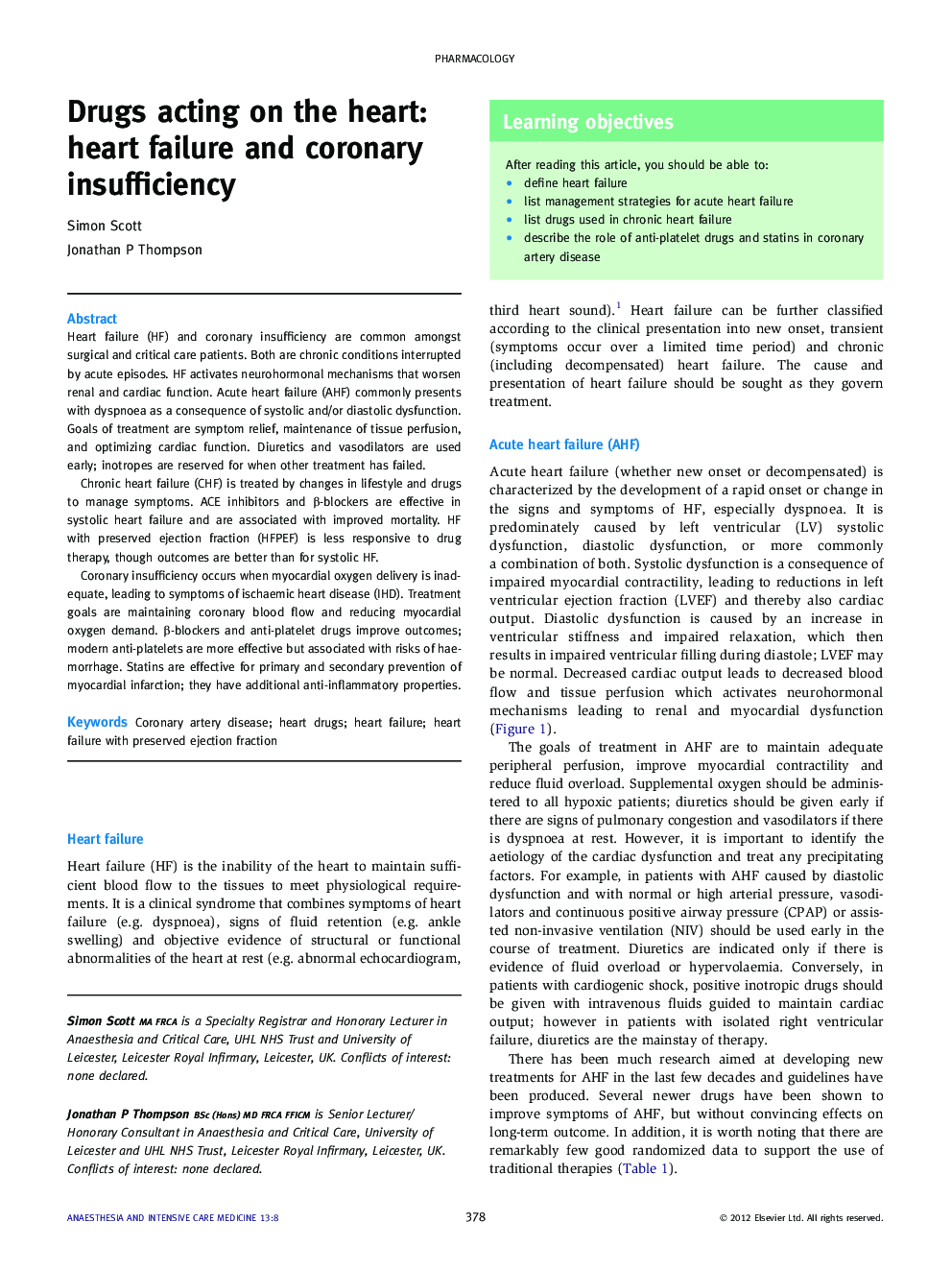| Article ID | Journal | Published Year | Pages | File Type |
|---|---|---|---|---|
| 2742959 | Anaesthesia & Intensive Care Medicine | 2012 | 6 Pages |
Heart failure (HF) and coronary insufficiency are common amongst surgical and critical care patients. Both are chronic conditions interrupted by acute episodes. HF activates neurohormonal mechanisms that worsen renal and cardiac function. Acute heart failure (AHF) commonly presents with dyspnoea as a consequence of systolic and/or diastolic dysfunction. Goals of treatment are symptom relief, maintenance of tissue perfusion, and optimizing cardiac function. Diuretics and vasodilators are used early; inotropes are reserved for when other treatment has failed.Chronic heart failure (CHF) is treated by changes in lifestyle and drugs to manage symptoms. ACE inhibitors and β-blockers are effective in systolic heart failure and are associated with improved mortality. HF with preserved ejection fraction (HFPEF) is less responsive to drug therapy, though outcomes are better than for systolic HF.Coronary insufficiency occurs when myocardial oxygen delivery is inadequate, leading to symptoms of ischaemic heart disease (IHD). Treatment goals are maintaining coronary blood flow and reducing myocardial oxygen demand. β-blockers and anti-platelet drugs improve outcomes; modern anti-platelets are more effective but associated with risks of haemorrhage. Statins are effective for primary and secondary prevention of myocardial infarction; they have additional anti-inflammatory properties.
